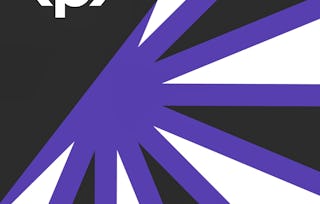Do you want to write powerful, maintainable, and testable front end applications faster and with less code? Then consider joining this course to gain skills in one of the most popular Single Page Application (SPA) frameworks today, AngularJS. Developed and backed by Google, AngularJS is a very marketable skill to acquire.

Single Page Web Applications with AngularJS

Single Page Web Applications with AngularJS

Instructor: Yaakov Chaikin
129,006 already enrolled
Included with
1,903 reviews
Skills you'll gain
Details to know

Add to your LinkedIn profile
47 assignments
See how employees at top companies are mastering in-demand skills

There are 5 modules in this course
In this module, we are going to start by going over how grading works for this course, will introduce some recommended books, as well as give you the information on how to find all of the source code that you will see throughout the course. We will then dive into the development environment setup for both Mac and Windows. The core of this module will be the introduction not only to the basics of AngularJS, but more importantly, the concepts that back AngularJS as a good solution for developing front-end web applications. To become a good software developer and not just with AngularJS, you will need to understand these concepts. But for becoming a good AngularJS developer, these concepts are essential, because they will allow you to understand the issues the framework is addressing and therefore get a good grasp on the solutions AngularJS is offering.
What's included
21 videos7 readings9 assignments1 peer review
We will start this module by learning how to use Angular filters to manipulate our data into the format we want and learn how to create our own custom filters. We will then dive deep into the digest cycle, which is the process AngularJS uses to magically update our web page with the bound data from our ViewModel or the controller. Understanding this process is crucial in getting comfortable with AngularJS. We'll also see some cases where we'll need to assist that process somewhat and understand why that is. After that, we'll learn one of the most fundamental concepts in the Javascript programming language, which is Prototypal Inheritance. Clear understanding of that topic is a must before we talk about inheritance between AngularJS controllers in our application. We'll finish off the module by learning how to create our own custom Angular services as well as how to configure them. With custom Angular services we'll be able to share data across different controllers or other components in our application. We will also learn a few useful Angular directives that allow us to place looping and conditional logic direction into our HTML. You'll see that by the end of this module, you'll have the skills to create a fairly sophisticated web application that starts to use some of the more advanced software architecture techniques.
What's included
25 videos3 readings12 assignments1 peer review
Welcome to module 3! In this module, we go over a lot of essential features of AngularJS. We will start with learning about the Promise API. While Promises are essential to Angular, this topic reaches far beyond Angular. It's really an essential topic to understanding modern web development with Javascript. We will also learn about making calls to the server through the built in Angular service called the HTTP service. We'll finish off the module by spending a considerable amount of time on THE crown feature of AngularJS: directives. Directives are really at the core of the entire framework. They not only allow us to extend the functionality of existing HTML elements, which is already pretty amazing in an of itself, but they also allow us to create our own element with custom view and custom behavior. Pretty exciting stuff!
What's included
19 videos3 readings10 assignments1 peer review
In this module, we start by introducing the idea of Component-based architecture. We will then delve into the AngularJS component API. The component API is something that was just recently added into Angular 1 and it's not only supposed to improve your application through the use of Component-based architecture, but also prepare you for an upgrade to Angular version 2, which uses components almost exclusively. We will then learn about the AngularJS event system and how to split up our application into smaller modules that can then be glued together to produce our final application. We'll finish off the module by diving fairly deep into Routing between views in your application and, specifically, into the use of the ui-router module, which is one of the most popular open source routing solutions within the AngularJS ecosystem. In fact, it's so popular that even the main Google documentation for routing in Angular links to ui-router. Routing is a very important topic. Without it, your Single Page Application is stuck displaying just 1 view, without an elegant way to display other views.
What's included
22 videos3 readings9 assignments1 peer review
Welcome to module 5! This is the last module in the course. We'll start this module by learning just how easy it is to validate forms with Angular. We will then delve into unit testing our AngularJS code. We will go over how to set up tests for every type of major Angular artifact: controller, service, directive, and component, as well as how to test services that access the network through the HTTP service. However, the last part of the module is the most fun. We will take the site that was developed for our real client in my previous course and re-write the entire thing using AngularJS. However, the coding fun doesn't have to stop there. After you finish the required part of the course, you can move on to the optional bonus part where we take our newly developed AngularJS application and enhance with it even more features that will allow the restaurant owners to administer their own data. We'll go over setting up authentication, editing restaurant menu items, uploading menu item pictures and so on.
What's included
32 videos5 readings7 assignments1 peer review
Instructor

Offered by
Explore more from Mobile and Web Development

Packt
 Status: Free Trial
Status: Free Trial
Why people choose Coursera for their career

Felipe M.

Jennifer J.

Larry W.

Chaitanya A.
Learner reviews
- 5 stars
90.01%
- 4 stars
7.51%
- 3 stars
0.94%
- 2 stars
0.42%
- 1 star
1.10%
Showing 3 of 1903
Reviewed on Sep 21, 2016
It gives you a very strong foundation. His explanation, and teaching methods are superb, I would be really happy if he was my teacher at university.Yaakov for president!
Reviewed on Sep 17, 2016
This is an excellent course. The lectures are clear and very well-prepared. The course material is excellent and Yaakov is an excellent presenter: very informative and engaging. Highly recommended.
Reviewed on Oct 21, 2020
Amazing course, I'm a very beginner but got everything he taught, his teaching style is unique and special, thanks for helping me out and getting me started over the coding process.

Open new doors with Coursera Plus
Unlimited access to 10,000+ world-class courses, hands-on projects, and job-ready certificate programs - all included in your subscription
Advance your career with an online degree
Earn a degree from world-class universities - 100% online
Join over 3,400 global companies that choose Coursera for Business
Upskill your employees to excel in the digital economy
Frequently asked questions
To access the course materials, assignments and to earn a Certificate, you will need to purchase the Certificate experience when you enroll in a course. You can try a Free Trial instead, or apply for Financial Aid. The course may offer 'Full Course, No Certificate' instead. This option lets you see all course materials, submit required assessments, and get a final grade. This also means that you will not be able to purchase a Certificate experience.
When you purchase a Certificate you get access to all course materials, including graded assignments. Upon completing the course, your electronic Certificate will be added to your Accomplishments page - from there, you can print your Certificate or add it to your LinkedIn profile.
Yes. In select learning programs, you can apply for financial aid or a scholarship if you can’t afford the enrollment fee. If fin aid or scholarship is available for your learning program selection, you’ll find a link to apply on the description page.
More questions
Financial aid available,



